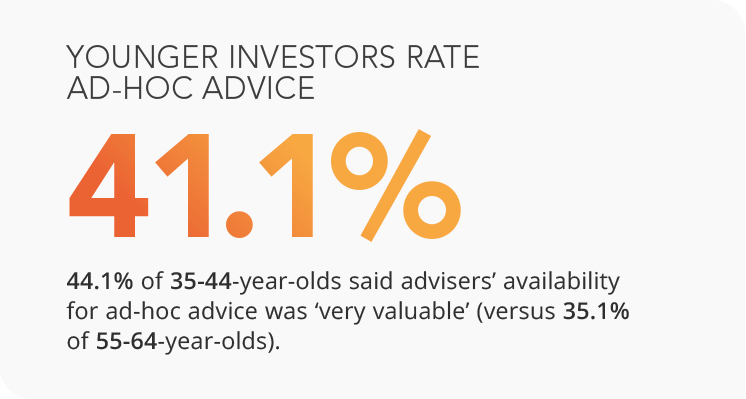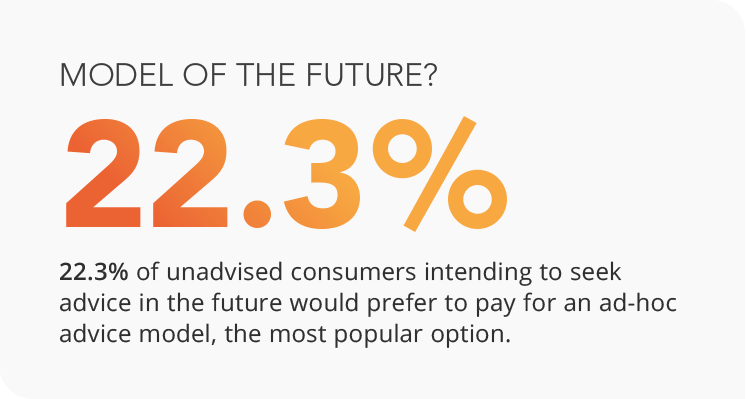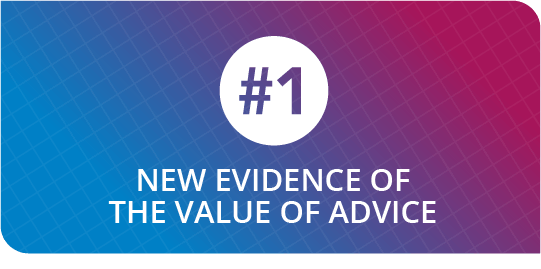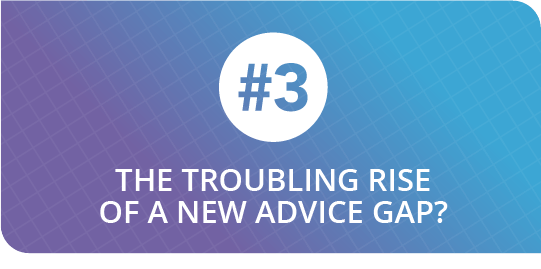Embark Investor Confidence Barometer
Rise of Ad-Hoc: The Future of Adviser Services
Newer adviser services most in demand by existing and future clients
Ad-hoc advice and email nudges edge still-popular traditional services
Most advisers confident in ability to charge appropriate fees in future

Our Barometer suggests there is a shift among existing clients – and a preference among unadvised consumers considering seeking advice – towards newer formats of adviser services.
Among advised consumers, when asked how valuable they find different components of their adviser’s service, they rated ‘availability for ad-hoc advice’ most highly, with 85% describing it as somewhat or very valuable.
This was followed by regular nudges and updates via email (84%) and financial health checks when facing major life events (81%), suggesting fluidity and flexibility of advice are now priorities for clients.
More traditional formats were still popular, with initial personalised financial plans, regular reviews, and face-to-face meetings described as valuable by 80%, 77% and 78% of advised consumers respectively.
However, regular reviews and face-to-face meetings were significantly skewed by the 65-70-year-old cohort, 92% of which thought each was valuable.

Adviser services ranked
All percentages combine ‘very valuable’ and ‘somewhat valuable’ among advised consumers based on 250 responses.


Unadvised consumers value pay-as-you-go
Newer formats of advice were also desired by unadvised consumers considering seeking financial advice.
One in three people without an adviser has considered seeking financial advice since the Covid-19 crisis began, and three in four intend to seek financial advice in the future in one form or another.
Similarly to their advised counterparts, among those unadvised consumers intending to seek advice in the future, the highest proportion (22%) said paying for it on an ad-hoc basis would be their preferred model.
Meanwhile, 17% said they would be most willing to pay for a full financial plan with annual reviews, 16% preferred somewhere in between, while 19% said they would not be willing to pay for any of the stated models.
Despite this, adviser confidence in their ability to charge appropriately for their services remained robust. Almost six in ten advisers (59.2) either ‘strongly’ or ‘somewhat’ agreed they would be able to continue charging enough in the future, although 36.4% neither agreed nor disagreed.


An Expert’s View
“Can we envisage a future where some advisory businesses are able to offer a menu of full advice, guided services, and execution-only?
Time will tell (and a lot will depend on the sophistication of firms’ preferred platforms), but I think this is a fairly clear message from the market that a broader range of flexible adviser services would be welcome.
There may be a regulatory benefit to firms too: as recently as December 2020 the FCA flagged that it was “concerned” too many new customers were being placed in ongoing advice arrangements.
According to the FCA’s own data, more than 90% of new clients are paying ongoing advice fees (an increase from 60% in 2016 and 70% in 2019).
Ongoing advice remains essential for many customers and it is vital firms can charge appropriately for their services, and to ensure they are running profitable and sustainable businesses. Adviser services remain essential to our financial health.
Those firms open to experimenting with a wider range of services and using more digital techniques will appeal not only to unadvised consumers considering dipping their toes in the regulated advice market, but also to generations beyond their existing clients.”
Phil Bungey,
Former Chief Operating Officer, Advance by Embark
Contact us
If you have any questions or wish to find out more about the Embark Investor Confidence Barometer, please contact us here.

Download the full guide
Looking to download the full Embark Investor Confidence Barometer? Simply fill out a form and download the guide.



